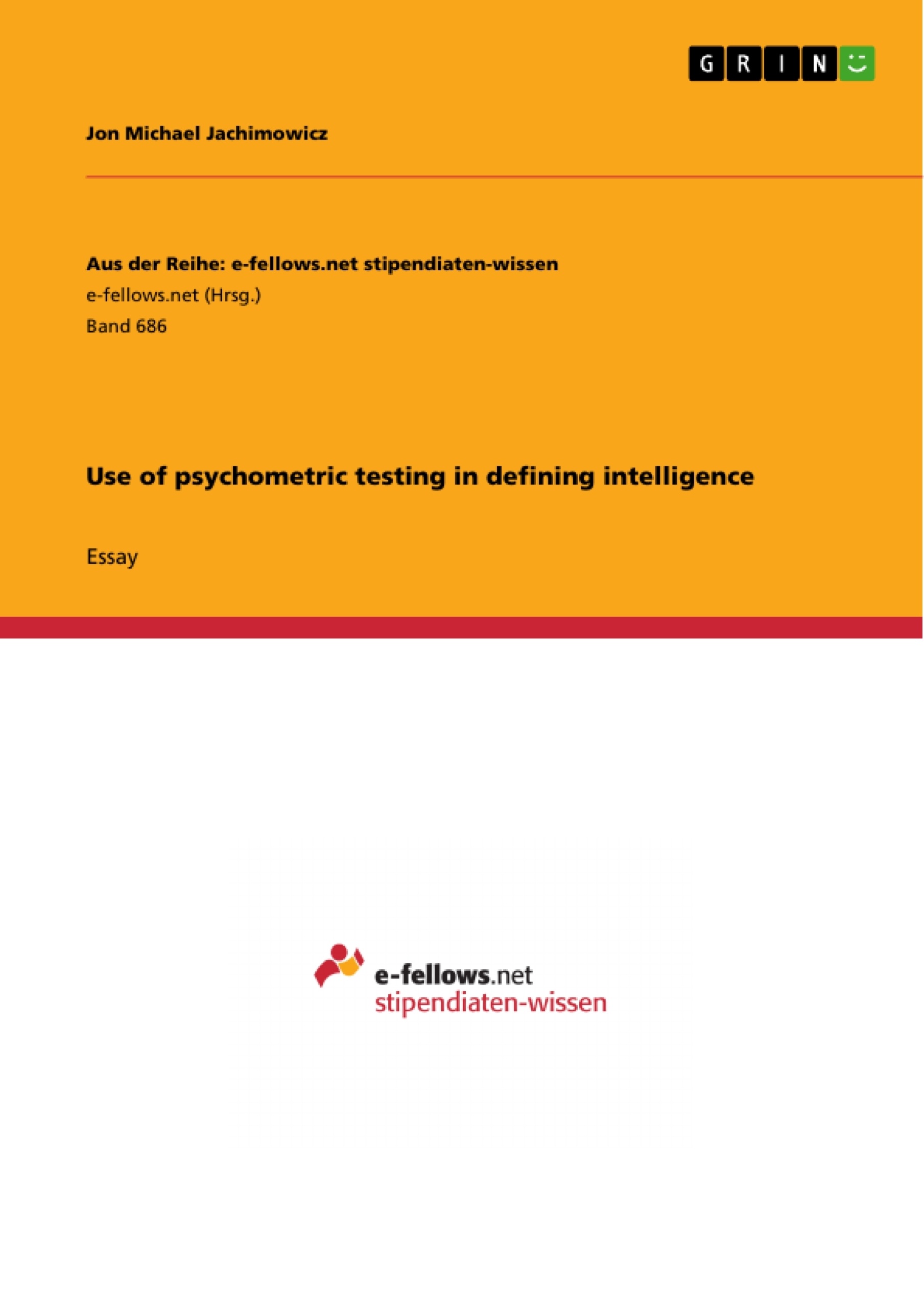Researchers widely disagree on a common definition of intelligence
(Sternberg & Berg, 1986), conceptually describing it as “a general capacity for
inferring and applying relationships drawn from experience” (Herrnstein &
Murray, 1994), emphasizing that “it is not merely book learning []; [it is] a
broader and deeper capability for comprehending our surroundings []”
(Gottfredson, 1997). In stark contrast are more operational definitions based
on psychometric intelligence measures, such as “Intelligence is what the tests
test” (Boring, 1923), or “a person’s score on a statistically determined set of
questions” (Herrnstein & Murray, 1994). Although having supported the
theoretical development of intelligence, psychometric tests have been
criticized for their over-simplification, inaccuracies and potential misuse
(Nisbett et al, 2012). This essay will focus on evaluating potential benefits and
drawbacks of using psychometric intelligence tests to help define intelligence,
concentrating on the most dominant ‘IQ’ test, for which the bulk of evidence
exists. [...]
Table of Contents
- Introduction
- The Psychometric Approach to Intelligence
- Origins and Development of Psychometric Intelligence Tests
- Measuring Intelligence: Benefits and Drawbacks
- Limitations of Psychometric Tests
- The Role of IQ Tests in Defining Intelligence
- Social and Political Implications of Psychometric Testing
- Conclusion
Objectives and Key Themes
This essay aims to evaluate the potential benefits and drawbacks of using psychometric intelligence tests to define intelligence. It examines the historical development of such tests, focusing on the most dominant 'IQ' test. The essay explores the limitations of psychometric measurements and considers the social and political implications of using IQ tests to determine intelligence. The main themes explored in this essay include:- The definition of intelligence
- The limitations of psychometric intelligence tests
- The social and political implications of using psychometric tests
- The relationship between IQ scores and various social outcomes
- The influence of psychometric testing on education and social policy
Chapter Summaries
The essay begins by outlining the difficulties in defining intelligence, acknowledging the widespread disagreement among researchers. The author then introduces the psychometric approach to intelligence, highlighting its emphasis on quantifying individual differences. It explores the origins of psychometric tests, from Binet's Scale to the development of the IQ test, and examines the rationale behind the belief that these tests measure Spearman's 'g'.
The essay then focuses on the potential benefits and drawbacks of using psychometric intelligence tests to define intelligence. The author highlights the use of these tests for identifying individuals who may require special education and their predictive validity for academic performance. The essay also explores the correlation between IQ scores and other social outcomes, such as occupational performance and income.
However, the essay also critically analyzes the limitations of psychometric testing. The author discusses the challenges in accurately measuring intelligence, the questionable legitimacy of the assumptions underlying psychometric tests, and the potential for misuse. The essay concludes by examining the social and political implications of psychometric testing, highlighting the misuse of these tests for promoting eugenics and justifying discrimination.
Keywords
The essay focuses on the key concepts of intelligence, psychometrics, IQ testing, 'g' factor, social implications, and political implications. It explores the theoretical development of intelligence, the limitations of psychometric measurements, and the social and political consequences of using IQ tests to define intelligence.- Citation du texte
- Jon Michael Jachimowicz (Auteur), 2012, Use of psychometric testing in defining intelligence, Munich, GRIN Verlag, https://www.grin.com/document/211118



